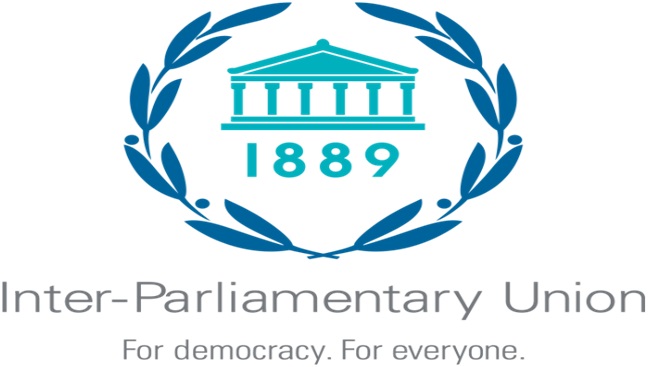Interactive Voice Response System (IVRS)

- 08 May 2024
Why is it in the News?
Political parties are currently reaching out to voters through Interactive Voice Response System (IVRS) calls on a daily basis.
What is an Interactive Voice Response System?
- Interactive voice response is a technology that allows telephone users to interact with a computer-operated telephone system through the use of voice and DTMF tones input with a keypad.
- IVR or Interactive Voice Response software accepts caller input, either voice or touch-tone, in response to pre-recorded prompts, and provides programmed responses.
- The responses can range from simple call routing to complex actions involving several external systems and data points depending on the software’s sophistication.
- The name, “interactive voice response” is derived from the caller responding to interactive options, offered by a pre-recorded voice.
Functionality:
- IVRS is powered by pre-recorded messaging or text-to-speech technology.
- It features a dual-tone multi-frequency (DTMF) interface.
Types:
- Touch-tone replacement: This system prompts callers to use a touch-tone keypad selection to access information.
- Directed dialogue: Provides specific verbal prompts to callers depending on their inquiry.
- Natural language: Employs speech recognition to better understand user requests.
- Industry Application: IVRS technology has been widely used across multiple industries, including banking, customer service, education, healthcare, and travel.
Benefits:
- Increased customer satisfaction by providing a streamlined experience.
- Improved contact centre operations and KPIs through call volume management.
- Reduced hold times during high call volume periods.
- Cost-effectiveness by reducing the need for customer service representatives.
International Network for Terrestrial Research and Monitoring in the Arctic (INTERACT)

- 01 Apr 2024
Why is it in the News?
In a recent development, Arctic research stations under INTERACT reported a significant loss of over 1,000 billion tonnes of ice over the past four decades.
About the International Network for Terrestrial Research and Monitoring in the Arctic (INTERACT):
- The International Network for Terrestrial Research and Monitoring in the Arctic (INTERACT) is an infrastructure project under the auspices of SCANNET.
- INTERACT specifically seeks to build capacity for research and monitoring in the European Arctic and beyond and is offering access to numerous research stations through the Transnational Access program.
- It aims to build capacity for identifying, understanding, predicting, and responding to diverse environmental changes throughout the wide environmental and land-use envelopes of the Arctic.
- The project, which is funded by the EU, has the main objective of building capacity for identifying, understanding, predicting, and responding to diverse environmental changes throughout the wide environmental and land-use envelopes of the Arctic.
- INTERACT is a multidisciplinary initiative; collectively, its stations host thousands of scientists worldwide who collaborate on projects spanning glaciology, permafrost studies, climate research, ecology, biodiversity, and biogeochemical cycling.
About the Scandinavian Network for Coordinated Observation of the Atmosphere and Terrestrial Environment (SCANNET):
- SCANNET is a circum-Arctic network of currently 77 terrestrial field bases in northern Europe, Russia, the US, Canada, Greenland, Iceland, the Faroe Islands, and Scotland as well as stations in northern alpine areas.
- The primary aim of SCANNET is to facilitate coordinated observations and research activities focused on the atmosphere and terrestrial environment in the Arctic region.
- These observations cover a wide range of scientific disciplines, including meteorology, climatology, ecology, geology, and environmental science.
- By leveraging the diverse geographical locations of its field bases, SCANNET enables scientists to study various environmental phenomena, such as changes in weather patterns, shifts in ecosystems, permafrost dynamics, and the impact of climate change on Arctic landscapes.
- Moreover, SCANNET serves as a platform for collaboration and information sharing among researchers from different institutions and countries.
- It fosters partnerships and promotes the exchange of data, methodologies, and best practices, thereby enhancing our understanding of Arctic processes and their global implications.
Vice President Interacted With Inter-Parliamentary Union (IPU) President During P20 Summit (PTI)

- 14 Oct 2023
Why in the News?
Vice President Jagdeep Dhankhar recently hosted a lunch for heads of parliamentary delegations attending the G20 Parliamentary Speakers' Summit (P20) and also interacted with Inter-Parliamentary Union (IPU) President Duarte Pacheco.
About the Inter-Parliamentary Union (IPU):
- Established in 1889 in Paris, the Inter-Parliamentary Union (IPU) is the international organization of Parliaments, dedicated to promoting representative democracy and world peace.
- It serves as the first multilateral political organization globally, fostering cooperation and dialogue among all nations.
- Mission and Slogan: The IPU's mission revolves around parliamentary diplomacy, empowering parliaments, and parliamentarians to advance peace, democracy, and sustainable development worldwide.
- Its slogan, "For democracy. For everyone," encapsulates its commitment to democratic values.
- Membership and Promotion of Democracy: Currently comprising 179 member parliaments and 13 associate members, the IPU actively promotes democracy by strengthening parliaments, and fostering youth inclusion, gender balance, and diversity.
- A dedicated committee defends the human rights of parliamentarians globally.
- Headquarters and Funding: The IPU relocated its headquarters to Geneva in 1921.
- Financed primarily by its members using public funds, the organization sustains its operations and initiatives.
Organizational Structure:
- IPU Assembly: Principal statutory body expressing IPU views on political issues.
- Gathers parliamentarians to study international problems and make actionable recommendations.
- Governing Council: Plenary policymaking body composed of three representatives from each member parliament.
- Establishes the IPU's annual program, and budget, and considers substantive issues.
- Executive Committees: A 17-member body overseeing IPU administration and advising the Governing Council.
- Fifteen members elected by the Council for a four-year term.
- Standing Committees: Three committees set up by the Governing Council to assist the Assembly in its work.
- Meeting of Women Parliamentarians: A separate organ meeting during the first round of Statutory Meetings, reporting to the Governing Council.
- Attended by parliamentarians of both sexes, focusing on specific substantive items for debate within the Assembly's competence.
